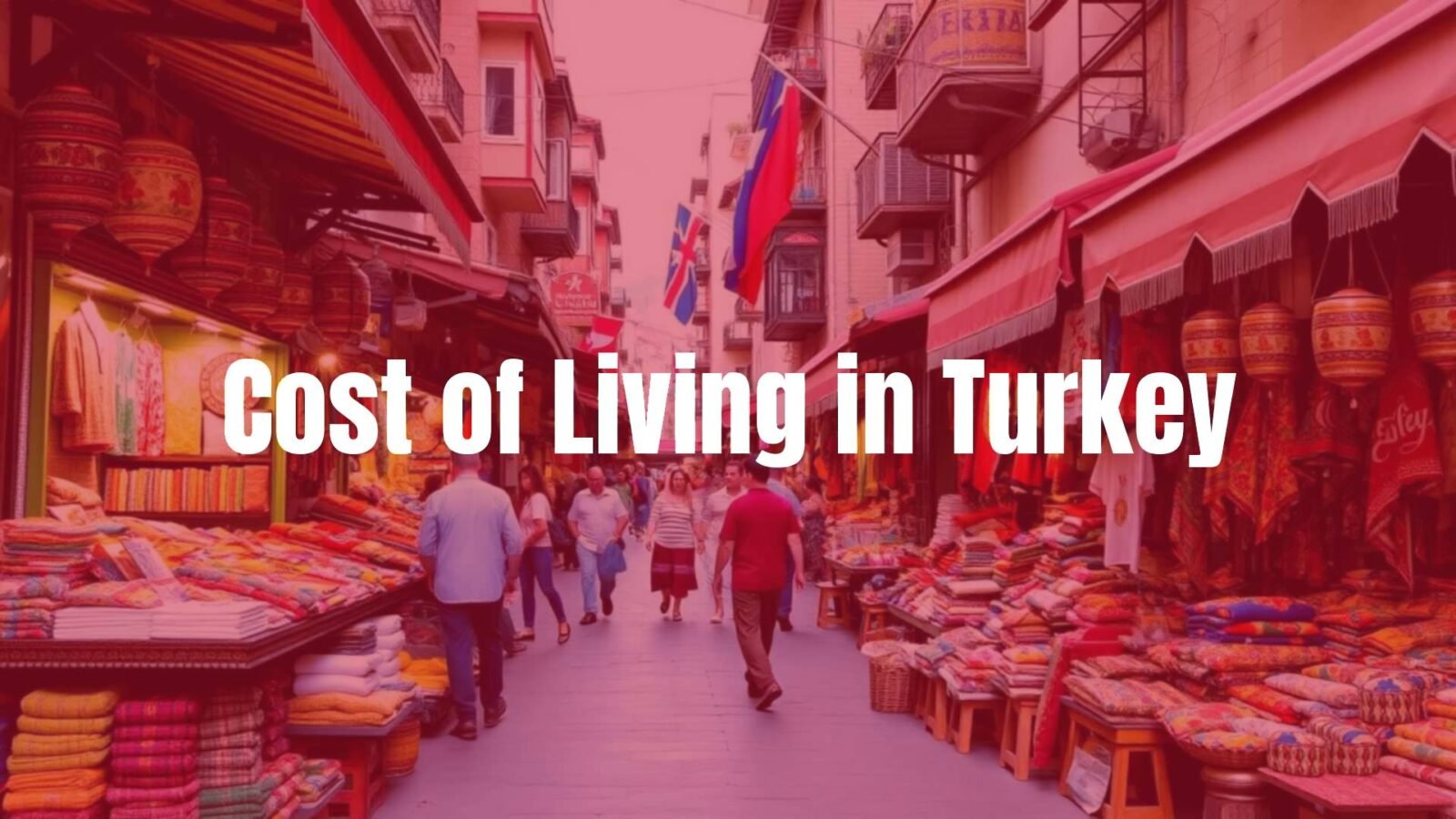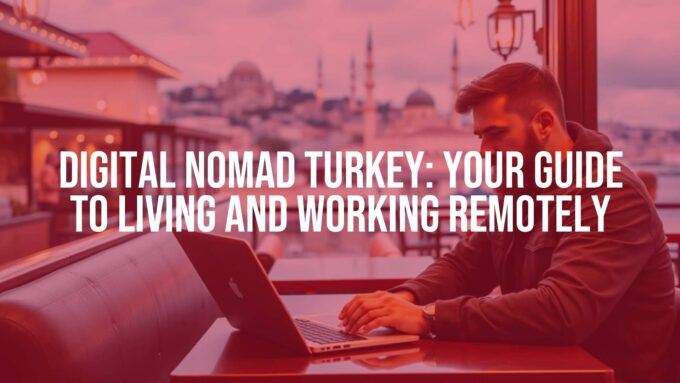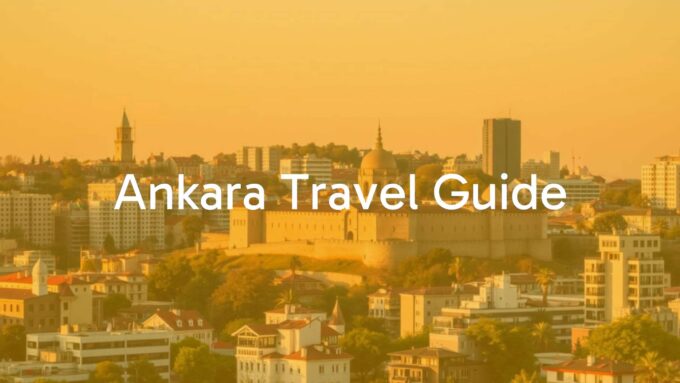The cost of living in Turkey interests many people, whether they plan to move, stay for a while, or are simply curious about prices. So, is Turkey expensive to live in? In general, no. Turkey is budget-friendly compared to many Western countries. Still, costs are not the same everywhere. They change a lot by city, personal choices, and the economy, especially the Turkish Lira’s value and inflation.
Big cities like Istanbul cost more, while smaller towns and rural areas are much cheaper. Turkey’s mix of history, culture, and modern services, along with lower day-to-day costs, attracts expats, retirees, and digital nomads. Knowing what affects daily spending helps you manage your money better in Turkey.

Cost of Living in Turkey: Overview
Turkey sits between Europe and Asia and offers a unique price picture. Costs are much lower than in many Western European countries and the United States. You’ll see savings on housing, food, transport, and entertainment. But prices can change, and a few main drivers shape the overall picture.
The appeal of lower costs has even supported programs like Turkey’s citizenship by investment, making the country attractive for people looking for a new home or an investment. To understand what you might spend, it helps to look at the main cost drivers and how they show up in daily life.
What factors affect the cost of living in Turkey?
Location matters most. Large cities such as Istanbul, Ankara, and Izmir offer more jobs and services but higher prices, especially for rent. Smaller cities and towns are cheaper and can offer a comfortable life for much less.
Lifestyle also makes a big difference. Eating out often, buying imported goods, using a private car, and choosing international schools raise monthly costs. Buying at local markets, using public transport, and choosing free or low-cost activities help keep spending down. Housing type and location (rent vs buy, apartment vs house, center vs suburbs) can be the biggest bill each month.
How does the Turkish Lira impact daily expenses?
The Turkish Lira (TRY) is the local currency, and its value affects prices day to day. In recent years, it has moved a lot due to inflation and wider economic factors. If you earn in stronger currencies (USD, EUR, GBP), a weaker Lira gives you more buying power, so your income goes further and can improve your quality of life in Turkey.
If you earn in Lira, inflation can reduce your buying power and make things cost more over time. Turkey has faced high inflation in recent years, which raised prices for many goods and services. Exchange rates can change often, so checking rates helps with budgeting, especially if you convert money from abroad. The wider economy affects what people pay every day across the country.
Average Monthly Living Costs in Turkey
Average monthly costs in Turkey vary by household size and income. Turkey is cheaper than many Western countries, but details can differ a lot. The latest figures as of September 23, 2025, show what single people and families might spend.
Keep in mind these are country averages. City-by-city costs can be higher or lower. These estimates usually include basics like food, transport, utilities, and some leisure-but they often exclude rent, which changes a lot by location.
Typical expenses for a single person versus a family
For a single person, average monthly costs (without rent) are about 657.8$ (27,217.1 TL). This can change with habits like eating out and entertainment. Living modestly and choosing local options, a single person can do well on 15,000 to 25,000 TL per month, depending on the city.
For a family of four, average monthly costs (without rent) are around 2,379.9$ (98,468.6 TL). This reflects higher needs for food, utilities, and sometimes education and healthcare. The poverty line for a family of four in Istanbul was TL 81,733 ($2,088) in May, showing the pressure families can feel in pricier cities.
Average salary and minimum wage figures
The average monthly net salary (after tax) is about 33,919.86 TL. This helps you compare income to expenses. People paid from abroad often find they can live very comfortably due to lower prices.
The minimum wage rose a lot from 2023 to 2024, reaching about $500 per month. In May, the minimum wage in Istanbul was TL 22,104 ($563). For a family of four, living costs in Istanbul were over four times the minimum wage in May, which can be tough for low-income households. Higher income helps a lot, especially for families.
Breakdown of Common Living Expenses in Turkey
To get a clear picture, it helps to look at each expense category. Housing, food, transport, and other daily costs all play a part. Turkey is often affordable, but choices within each category can raise or lower your monthly bill.
The sections below share typical costs for daily life to help you plan.
Housing and rent prices
Housing is usually the biggest expense. Rent depends on city, neighborhood, and property type. In Istanbul, Ankara, and Izmir, central and upscale areas cost more. A 1-bedroom in a city center across Turkey averages about 25,921.84 TL per month (range 16,000.00 – 45,000.00 TL). Outside the center, it averages about 18,234.39 TL (range 12,000.00 – 30,000.00 TL).
| Apartment type/location | Average monthly rent (TL) | Typical range (TL) |
|---|---|---|
| 1-bedroom, city center | 25,921.84 | 16,000 – 45,000 |
| 1-bedroom, outside center | 18,234.39 | 12,000 – 30,000 |
| 3-bedroom, city center | 43,963.30 | 27,000 – 80,000 |
| 3-bedroom, outside center | 29,655.77 | 20,000 – 50,000 |
Buying also varies. Price per square foot to buy in a city center is around 7,293.67 TL; outside the center it’s about 4,287.81 TL. Overall, rent in Turkey is about 66.2% lower than in the United States.
Utilities and internet costs
Utilities are generally affordable. For a 915 sq ft apartment, basic utilities (electricity, heating, cooling, water, garbage) average about 2,696.97 TL per month (range 1,700.00 – 4,837.00 TL). For a 45 m2 studio, one person might pay around 1,966 TL.
Home internet (60 Mbps+, unlimited) is about 567.76 TL per month (range 450.00 – 806.80 TL). Mobile plans with calls and 10GB+ data average 415.62 TL per month (250.00 – 700.00 TL). Many buildings also charge an “aidat” for shared maintenance.
Groceries and market expenses
Food costs are often low, especially if you shop at local bazaars for fresh produce. A single person’s monthly groceries can be 1,000 to 2,000 TL, depending on diet and imported vs local choices. Basics like bread, milk, eggs, and vegetables are cheap.
Sample prices: a gallon of milk ~150.16 TL, a 1 lb loaf of white bread ~28.36 TL, a dozen eggs ~89.74 TL. Chicken fillets (1 lb) ~104.71 TL; beef round (1 lb) ~355.65 TL. Fruits and vegetables are also well-priced: apples (1 lb) ~26.50 TL, bananas ~41.95 TL, oranges ~22.99 TL, tomatoes ~25.55 TL. Buying seasonal and local can save a lot.

Eating out: restaurants and cafes
Eating out can be very affordable if you choose local places and street food. A meal at a cheap restaurant is about 350.00 TL (200.00 – 600.00 TL). A three-course meal for two at a mid-range spot averages 1,500.00 TL (1,000.00 – 3,309.97 TL).
Fast food: a McMeal is about 335.00 TL. A cappuccino is around 134.05 TL. Alcohol can be pricey due to taxes: a domestic beer (pint) ~140.00 TL; an imported beer (small bottle) ~180.00 TL.
Transportation and commuting
Public transport is widespread and cheap. A one-way ticket costs about 27.00 TL (25.00 – 40.00 TL). A monthly pass is around 1,800.00 TL (600.00 – 2,220.00 TL). This is much cheaper than many Western cities.
Taxis are also fairly priced. The start fare is about 43.00 TL, plus ~48.28 TL per mile. Ride-hailing works in big cities. Owning a car costs more due to fuel: a gallon of gasoline is about 187.07 TL. New cars are costly; for example, a Volkswagen Golf can be over 2 million TL.
Healthcare and insurance costs
Healthcare quality is high and prices are much lower than in many Western countries. There are public and private options. Citizens and residents can use the public system (SGK) at low cost. Expats usually need private insurance, which is often cheap.
Basic private insurance can start around $20 per month, while a fuller plan can be about $300 per month-far less than $500+ in the US. A short visit to a private doctor averages ~2,308 TL, and a box of antibiotics is about 204 TL. Everyday toiletries and over-the-counter meds are affordable; imported brands can cost more.
Education and schooling
Education costs vary by school type and city. Public primary and secondary schools are free for citizens and residents. Many expats choose private or international schools for language and curriculum reasons.
International primary school tuition averages 553,377.83 TL per year (range 300,000.00 – 1,000,000.00 TL). Private preschool or kindergarten can be around 27,325.45 TL per month. Public universities range from $200-$1,500 per year; international students may pay more. Private universities run $5,000-$20,000 per year. International schooling can be a large cost for families.
Leisure, entertainment, and sports
Turkey offers many low-cost leisure options. Museum and historical site tickets are usually 50 to 200 TL, with discounts for students and seniors. Nightlife costs vary; a night out at a mid-range venue might be 200 to 500 TL with drinks and entry.
A gym membership averages 2,043.53 TL per month (1,000.00 – 3,500.00 TL). Renting a tennis court for an hour on a weekend is about 781.46 TL. Cinema tickets for a new release are around 250.00 TL. Hiking, swimming, and other outdoor activities are often free or cheap.
Clothing, shoes, and personal care
For clothing and personal care, prices depend on brands and where you shop. International chains can be pricey by Western standards: Levi’s 501 jeans ~2,157.34 TL; a summer dress ~1,756.29 TL. Nike running shoes ~4,415.75 TL; men’s leather business shoes ~3,770.97 TL. Local brands and markets are cheaper.
Personal care items are usually low-cost. Roll-on deodorant ~159 TL; shampoo (400 ml) ~118 TL; toothpaste ~104 TL; 4 rolls of toilet paper ~90 TL. A standard men’s haircut in an expat area is about 399 TL.
Cost of Living in Major Turkish Cities
Costs vary a lot by city. Big cities are pricier than smaller ones. Below is a quick look at several major cities to help compare budgets.
Picking the right city can shape your monthly costs and day-to-day life, so this choice matters.
Overview of costs by city
Istanbul is the most expensive. Ankara, Izmir, and Antalya follow, each with its own pattern. Housing shows the biggest gap, and groceries, transport, and cafe prices also differ.
For example, a cheap restaurant meal is about 350 TL in Istanbul and a bit less in Ankara or Izmir. Utilities, public transport, and coffee vary by city, so checking local prices helps.
Istanbul
Istanbul is Turkey’s biggest city and the most costly. Cost of Living Index: 42.4 (Prague = 100). Rent Index: 22.2. A 1-bedroom in the center is 30,000-60,000 TL per month; outside the center, 15,000-35,000 TL. For a 3-bedroom in the center, expect 56,591 TL ($1,652) up to 80,000 TL.
Monthly utilities: 3,500-7,000 TL. Basic groceries per month: 7,000-15,000 TL. A cheap meal is ~350 TL ($10.22). A monthly public transport pass is ~1,389 TL ($40.57). Still, Istanbul is much cheaper than many global cities-about 233% cheaper than New York City.
Ankara
Ankara is more moderate than Istanbul. Cost of Living Index: 38.5; Rent Index: 16.0. A 1-bedroom in the center is 15,000-35,000 TL; outside the center, 10,000-25,000 TL. A 3-bedroom in the center is about 32,375 TL ($945).
Utilities: 2,500-5,000 TL. Monthly groceries: 5,000-10,000 TL. A cheap meal is ~300 TL ($8.76). A monthly public transport pass is about 300 TL ($8.67).
Izmir
Izmir offers a good balance of city life and cost. Cost of Living Index: 40.6; Rent Index: 15.4. A 1-bedroom in the center averages ~20,190 TL ($589). A 3-bedroom is ~30,166 TL ($881). Buying property is cheaper than in Istanbul.
Utilities are around 2,171 TL ($63.40). A cheap meal is about 300 TL ($8.76). A monthly transport pass is ~600 TL ($17.52). The climate and coastal setting add to its appeal at lower costs than Istanbul.
Antalya
Antalya, a major coastal and tourism city, is cheaper than Istanbul and Ankara. Cost of Living Index: 39.0; Rent Index: 13.8. A 1-bedroom in the center is 18,000-35,000 TL; outside, 12,000-25,000 TL. A 3-bedroom in the center is 35,000-70,000 TL.
Utilities: 2,500-5,000 TL. A cheap meal is ~275 TL ($8.03). A monthly public transport pass is ~900 TL. Property prices per m² in residential complexes are about 2,968 TL.
Bursa
Bursa is a more affordable large city. Cost of Living Index: 32.0; Rent Index: 9.2. A 1-bedroom in the center is 15,000-30,000 TL; outside, 10,000-22,000 TL. A 3-bedroom in the center is 30,000-60,000 TL.
Utilities: 2,000-4,500 TL. A cheap meal is ~400-900 TL. A monthly public transport pass is ~850 TL. Property prices per m² in residential complexes are about 3,335 TL.

What Percentage of Salary Goes Toward Living Expenses in Turkey?
Knowing how much of your income goes to living costs helps with planning. In Turkey, this share depends on income, lifestyle, and city. The rough breakdown below uses a monthly income of about $1,500 (a bit above average locally or a modest foreign income).
- Monthly rent: About 16.2% of income. This can be higher in city centers or for larger homes, and lower in suburbs or smaller towns.
- Markets (groceries): About 35.6% of income. Shopping at bazaars and buying seasonal items helps lower this.
- Transportation: About 19.6% of income. Car owners may pay more; public transport users often pay less.
- Restaurants: Around 11.3% of income. Eating out often will raise this share.
- Monthly utilities: About 7% of income. These services are fairly affordable.
- Leisure and sports: Around 6.8% of income. Many activities are accessible.
- Clothes and shoes: About 3.4% of income. Local brands are cheaper than many imports.
These are averages. For someone on minimum wage (about $500 per month or TL 22,104 in May), a larger share goes to basics, especially rent, which can make life tight. People paid in stronger foreign currencies often have more buying power and can live more comfortably.
Comparing the Cost of Living: Turkey vs Other Countries
Turkey looks even more budget-friendly when you compare it with other countries. Many people choose Turkey because the numbers often favor lower day-to-day costs than in Western nations and some nearby regions.
From routine spending to rent, the gap can be big, giving a high quality of life at a lower price.
Turkey vs United States
Turkey’s cost of living is much lower than in the US. On average, living costs are 43.1% lower. Housing shows the biggest gap: rent is about 66.2% lower than in the US. This appeals to Americans who want to cut expenses without a big drop in lifestyle.
For example, a 1-bedroom in a US city center might be $1,758 or more, while a similar place in Turkey is around $569. Utilities, private schooling, and simple meals out are also cheaper. Istanbul is about 233% cheaper than New York City.
Turkey vs United Kingdom
Living in Turkey costs about 43% less than in the UK before rent, and up to 48% less with rent included. Rent is about 60% lower in Turkey.
Groceries are also cheaper-about 37% lower-so everyday costs from food to housing are cut a lot, helping people save more or live better on the same income.
Turkey vs South Africa
Turkey and South Africa are closer in cost. Living in South Africa is about 7% cheaper than in Turkey. Groceries are the biggest gap, about 16% cheaper in South Africa.
Other categories are similar, so people choosing between the two may focus more on culture, climate, and personal needs rather than only price.
Other international comparisons
Turkey is often cheaper than much of Europe, which draws many expats. For example, Istanbul costs about 12% less than Thessaloniki and 34% less than Lyon. But Istanbul can cost more than some developing areas-about 31% more than Denpasar, Bali.
Turkey is also ranked as the cheapest country in the Middle East in one comparison (4 of 4) and costs less than about 74% of countries worldwide. Low prices plus rich culture make it a strong pick for many moving abroad.
Tips to Save Money While Living or Moving to Turkey
Living in Turkey is already affordable, and a few smart habits can cut costs even more. With local know-how and good choices, new residents and expats can make their budgets go further-on daily shopping, transport, health, and schooling.
Learn local routines, use the tools available to you, and choose options that fit a budget-first mindset.
How can expats reduce expenses?
Adopt local habits. Shop at bazaars for fresh produce-prices are often lower than supermarkets. Pick local brands over imported ones to save on food and clothes.
Use public transport instead of owning a car, especially in big cities where traffic is heavy and fuel adds up. Eat at simple local restaurants or try street food rather than upscale places. Consider living in smaller, cheaper cities outside the main hubs to cut rent and other costs.
Is healthcare expensive for foreigners?
Healthcare is affordable for foreigners in Turkey compared with the UK or the US. Private insurance is often required for expats, but premiums are low. A basic plan can start at about $20 per month, and a full plan is around $300 per month, far below US prices.
Medical services are also cheaper-often about 70% less than in the UK and US-so you can see private doctors and use private hospitals without very high bills.
Advice for families with children
Schooling can be a big expense, especially international schools. While public schools are free for residents, many expats choose international programs for language and curriculum reasons. These can average around $8,600 per year, and some primary schools reach up to 1,000,000 TL. To save, look at smaller or less famous international schools or consider schools with more local content.
Childcare ranges widely: public daycare ~1,500-4,000 TL per month; private daycare ~7,000-20,000 TL; live-in nannies ~20,000-40,000 TL. Use public options where available or compare private providers carefully. Free or low-cost outdoor activities and local events can keep kids busy without high costs. Buy groceries at local markets and cook at home to cut family food bills.
Frequently Asked Questions About the Cost of Living in Turkey
Is Turkey expensive to live in?
No. Turkey is generally affordable, especially compared to Western Europe and North America. Costs are lower for housing, food, transport, and entertainment. Inflation has raised prices, but many people still find daily life cheaper than in the West.
How much do you need to live comfortably in Turkey?
It depends on your city and lifestyle. A single person can live comfortably on 15,000-25,000 TL per month without rent. Including rent, average monthly costs for a single person are about 657.8$ (27,217.1 TL). For a family of four, average monthly costs (without rent) are about 2,379.9$ (98,468.6 TL). Those earning in stronger currencies often live very well due to exchange rates and lower local prices.
Is living in Turkey cheap compared to Europe?
Yes. Turkey is much cheaper than most of Europe. Living costs are about 43% lower than in the UK before rent, and up to 48% lower with rent included. Rent alone can be about 60% less, which makes Turkey appealing for people who want lower costs outside Western Europe.
What is the average monthly rent in Istanbul?
Rent varies by area and size. A 1-bedroom in the center is 30,000-60,000 TL per month. Outside the center, it’s 15,000-35,000 TL. A 3-bedroom in the center ranges from 56,591 TL ($1,652) up to 80,000 TL. Outside the center, it’s often around 29,655.77 TL (~$1,000).
How much does it cost to live in Turkey as a single person?
A single person spends about 657.8$ (27,217.1 TL) per month without rent. With rent, many singles live comfortably on around $1,200 per month, depending on the city and habits. Shopping at bazaars, using public transport, and choosing local brands help keep costs low.















Leave a comment